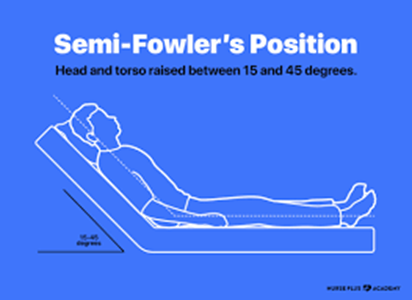Reflex incontinence is associated with neurologic dysfunction and occurs when no warning or stress precedes periodic involuntary urination.
"You are experiencing stress incontinence. Do you know how to do Kegel exercises?"
"You are experiencing transient incontinence. Have you been administered diuretics or IV fluids lately?"
"You are experiencing total incontinence. Have you had any surgeries or trauma that may be causing this?"
"You are experiencing reflex incontinence. Have you had a spinal cord injury in the past?"
The Correct Answer is D
Choice A rationale: Stress incontinence is characterized by involuntary urine leakage during activities that increase intra-abdominal pressure, such as coughing or sneezing.
Choice B rationale: Transient incontinence is temporary and often related to factors like medications or medical conditions.
Choice C rationale: Total incontinence refers to continuous and unpredictable leakage of urine.
Choice D rationale: Reflex incontinence is associated with neurologic dysfunction, and the lack of warning or stress preceding involuntary urination aligns with this description.
Nursing Test Bank
Naxlex Comprehensive Predictor Exams
Related Questions
Correct Answer is D
Explanation
Choice A rationale: Removing excess drainage and wet tissue to prevent maceration is more related to wound care than debridement.
Choice B rationale: Stimulating the wound bed to promote the growth of granulation tissue is a goal of debridement.
Choice C rationale: Removing purulent drainage from the wound bed is more related to wound care than debridement.
Choice D rationale: The primary goal of debridement is to remove dead or infected tissue to promote wound healing and create an environment conducive to tissue regeneration.
Correct Answer is B
Explanation
Choice A rationale: Protective supine positioning is not ideal for managing dysphagia or facilitating swallowing.
Choice B rationale: Semi-Fowlers positioning, with the head of the bed elevated at a 30 to 45-degree angle, is often recommended for clients with dysphagia. This position helps prevent aspiration during eating and promotes effective swallowing.
Choice C rationale: Low-Fowlers and Fowlers positions may not be as effective in preventing aspiration during eating as the Semi-Fowlers position.
Choice D rationale: Fowlers positioning alone may not be sufficient for managing dysphagia; Semi-Fowlers is a more specific recommendation.

Whether you are a student looking to ace your exams or a practicing nurse seeking to enhance your expertise , our nursing education contents will empower you with the confidence and competence to make a difference in the lives of patients and become a respected leader in the healthcare field.
Visit Naxlex, invest in your future and unlock endless possibilities with our unparalleled nursing education contents today
Report Wrong Answer on the Current Question
Do you disagree with the answer? If yes, what is your expected answer? Explain.
Kindly be descriptive with the issue you are facing.
